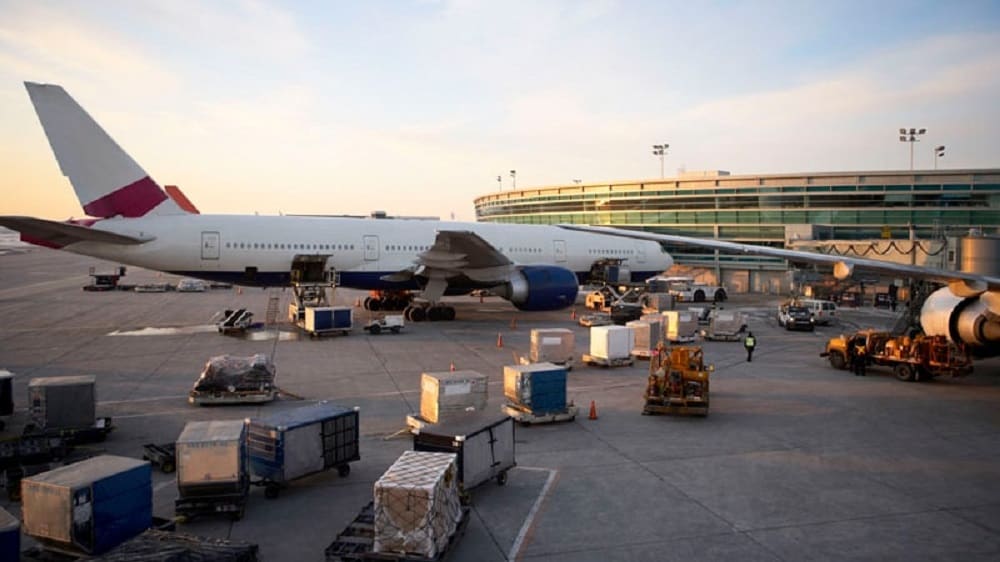Pearson Airport in Mississauga looks to cargo for continued cash flow
Published November 9, 2021 at 10:00 am

The air cargo business has played a key role in keeping revenue flowing for Pearson Airport in Mississauga during the COVID-19 pandemic, and airport officials want to keep that cash stream alive.
Speaking yesterday at the Airports Council International-North America’s 2021 annual conference and exhibition in Toronto, the head of Pearson said the pandemic also drove home the message that cargo is critically important in other ways, too.
“Over the last 18 months, air cargo was a lifeline for society, delivering personal protection equipment and vaccines, as well as meeting the supply needs of businesses and the ‘wants’ of consumers,” said Deborah Flint, president and CEO of the Greater Toronto Airports Authority (GTAA), which runs Pearson.
“We are in a time of great change and disruption. Global companies are rethinking their supply chains and how to ensure supply chain resiliency. At the same time, there is a boom in e-commerce, amplified by the pandemic, but expected to retain much of its momentum going forward.”
Flint, who moderated a panel on “The Continued Climb of Air Cargo,” was speaking to airport officials from across Canada and the U.S.
Air cargo has played a starring role in many airports’ operations over the last 18 months. Our CEO Deborah Flint moderated a panel, “The continued climb of air cargo,” during the @airportscouncil 2021 Annual Conference and Exhibition. Learn more: https://t.co/obqOXimoMc pic.twitter.com/rJORqyhsYl
— Toronto Pearson (@TorontoPearson) November 8, 2021
They discussed opportunities to “continue leveraging the air cargo revenue stream, attracting more cargo airline service and how airports can integrate cargo into their strategic plans.”
Officials at the airports said that with the downturn in air travel during the pandemic, “air cargo has played a starring role in many airports’ operations over the past 18 months, both from a revenue generation standpoint and by facilitating the movement of vital personal protective equipment, vaccines, perishable goods and more.”
Pre-pandemic, Pearson Airport processed 40 per cent of Canada’s air cargo and was rated in the top 30 airports worldwide for cargo activity, GTAA officials say.
Over the first half of 2021, average daily cargo activity at Pearson more than doubled versus 2019, they continued, underscoring the continuing importance of air cargo at Pearson to local communities, Ontario and the country.
In looking to the future, Flint said both short- and long-term outlooks are positive.
She noted that officials expect cargo demand in 2021 to be 8 per cent higher than 2019, rising to 13.2 per cent above 2019 levels in 2022.
“However, the cargo industry is also facing significant global supply-chain congestion, as well as throughput and staffing challenges at airports around the world including in the United States and Canada.”
Conference participants also touched on air cargo’s role as a safety net in the supply chain, the importance of technology and innovation, and how airports’ sustainability efforts can be incorporated into cargo activities.
insauga's Editorial Standards and Policies advertising





